How to Make Weed Vape Juice at Home
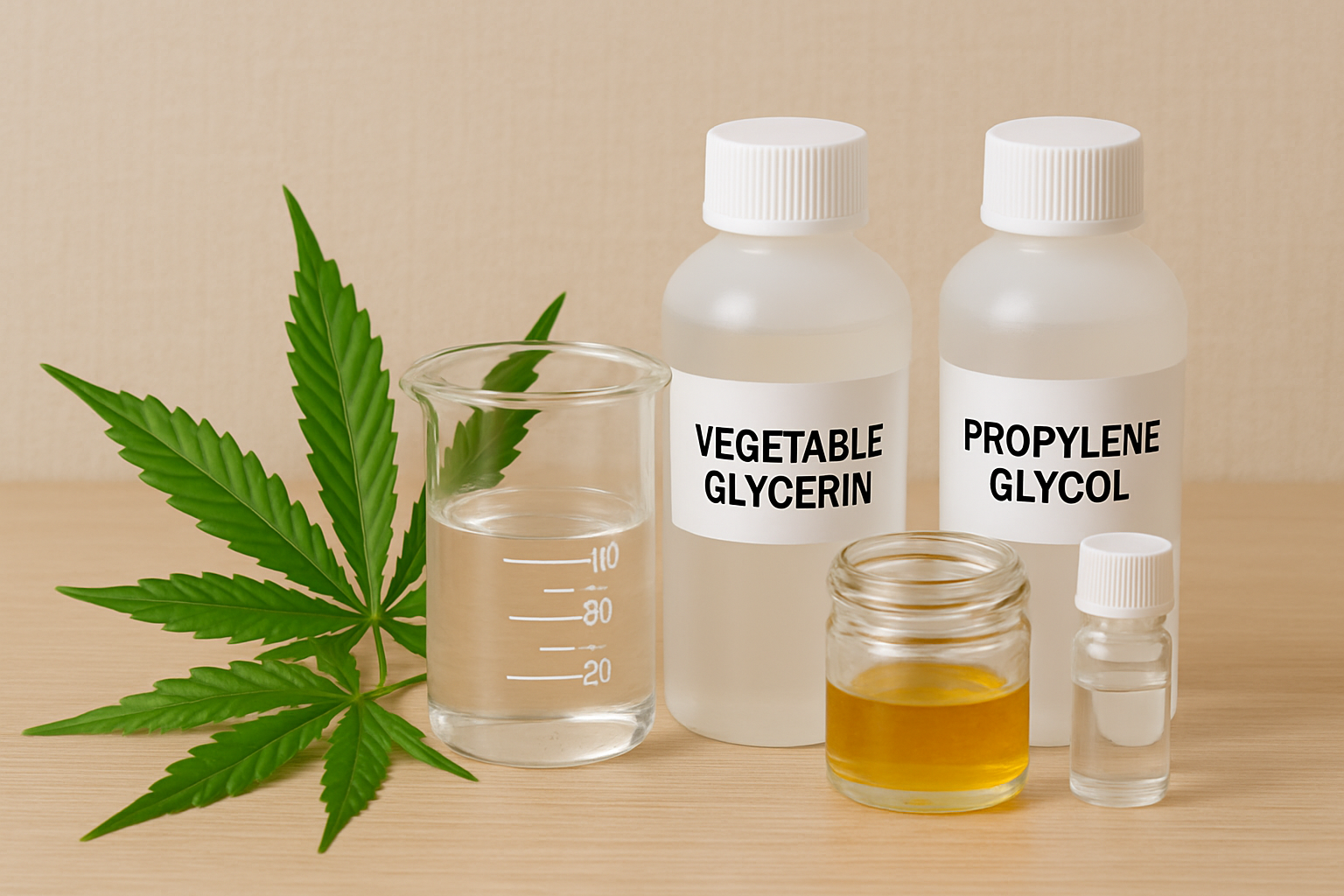
Ever wondered how to make your own weed vape juice at home?
It's not as hard as it seems! You can make a custom blend that suits your desired flavour and potency with this easy at-home recipe. This guide will help you whether your goal is to save money, try new foods, or simply experience the joy of creating something yourself.
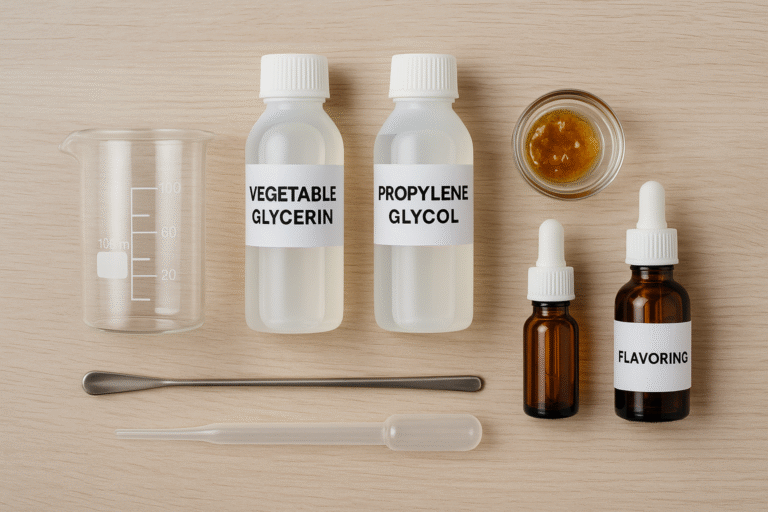
Make sure you have everything you need before you begin.
To create your own weed vape juice at home, you'll need the following supplies:
- For a smooth texture and thick vapour, use vegetable glycerin (VG).
- Propylene Glycol (PG): used to add taste and make the hit
- Cannabis concentrate in the form of wax, distillate, or shatter
- Optional Flavours: to add more flavour and fragrance
- Tools for mixing: stirrers, droppers, syringes, and beakers
- Heat Source: A double boiler or warm water bath are ideal.
- Storage containers, such as tiny glass bottles or vials for vape juice
Step 1: Mix Your Ingredients
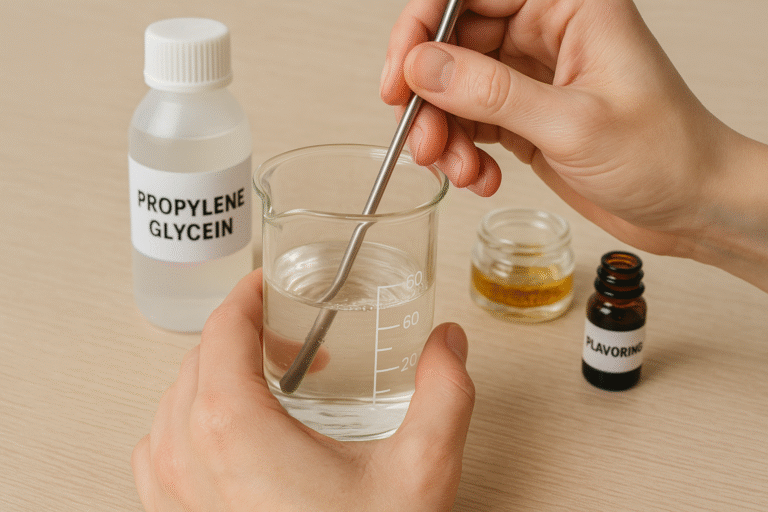
- Determine the VG/PG ratio you want (a 60/40 or 70/30 mix is typical).
- To the mixture, add your cannabis concentrate.
- Avoid boiling by heating slowly over low heat and stirring constantly until everything is well combined.
- Before transferring the mixture to containers, let it cool for a few minutes.
💡 Advice: Use more cannabis extract for a stronger potency. To ensure consistency, always mix with care.
Step 2: Store Your Creation
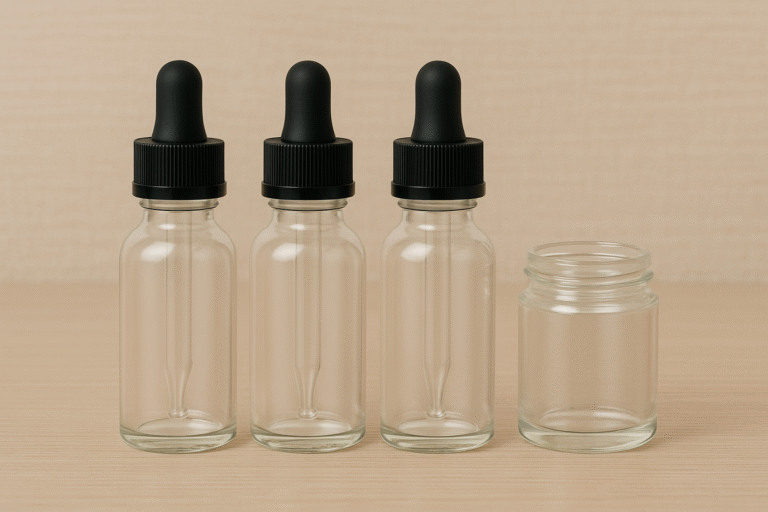
Pour your mixture into dropper containers or airtight glass bottles after it has cooled.
To preserve flavour and potency, keep your homemade cannabis vape juice in a cool, dark location.
Your juice will remain fresh and potent for weeks if it is stored properly.
Enjoy Responsibly
After creating your own cannabis vape juice at home, use it sensibly and sparingly.
Try a variety of flavours and VG/PG ratios until you discover the one that works best for you!
⚠️ Disclaimer
This content is solely intended for educational purposes.
Make sure you abide by all local laws and ordinances pertaining to the manufacture and consumption of cannabis-based products in your community.
What your audience should be aware of:
Completion, safety testing (residual solvents, pesticides, heavy metals, and potency) and consistent dosing are features of lab-tested vape juices.
What is THC Vape Juice?

THC vape juice, also known as THC e-liquid or THC cartridge oil, is a liquid that is designed to be inhaled after being vaporised in a vape pen or cartridge. From a conceptual standpoint, it combines a source of cannabinoids (THC in one of several forms) with a carrier that enables the cannabinoids to evaporate at the temperatures of the device. Finished products vary in viscosity, potency, and flavor — which affect how they perform in different devices.
What Makes THC Vape Juice Different from Other Ways to Consume THC
- Duration & Onset: Compared to edibles, vaping usually has a shorter overall duration and a quicker onset (minutes as opposed to hours).
- Bioavailability: Compared to oral routes, inhaled THC alters the effective dose by delivering cannabinoids straight to the bloodstream through the lungs.
- Titration and dose control: Vaping enables more rapid dose adjustments ("take another small puff" as opposed to waiting).
- Form factor: Viscosity and formulation are important for coils, wicks, and cartridge hardware because vape juices and cartridges are designed for particular devices.
- Risk profile: Compared to smoking (combustion byproducts) or eating (delayed onset overdose risk), there are distinct risks.
Advantages and Possible Drawbacks of Producing Your Own Vape Juice
Benefits:
- Customisation: Theoretically, the ability to select flavours and relative strengths.
- Cost control: If you source materials legally, you may be able to reduce the cost per dose.
- Transparency of ingredients: You can select products with established purity if you require laboratory testing or use commercial extracts.
- Learning and control: A better awareness of what you're breathing in when you purchase completed, tested goods or make use of authorised services.
Potential Risks:
- Legal exposure: It may be against the law to produce cannabinoid concentrates or vape liquids at home because they are regulated in many jurisdictions. Know local laws before doing anything.
- Contaminants: Products may contain heavy metals, pesticides, residual solvents, or microbiological contamination if they are not properly tested. Inhaling these pollutants can be harmful.
- Potency inconsistency: Home mixes can differ significantly from batch to batch, which raises the risk of adverse events and makes dosing unpredictable.
- Device safety: Improper viscosity or impurities may harm vape components or result in malfunctions. Improper charging and defective batteries can cause a fire.
- Health risks: According to medical evidence, there is a genuine risk of lung damage from inhaling untested additives and contaminants, such as lipophilic oils.
- Medical interactions: Users should speak with a healthcare professional because THC interacts with medications and medical conditions.
Safety Measures to Take When Preparing or Consuming THC Vape Juice
Important: Only safety advice and information on harm reduction are provided in this section. Instructions for extracting or creating THC concentrates are not provided.
- Observe the law: Verify local, state, and federal laws. Home manufacturing may be prohibited in areas where commercial production and sale are regulated.
- Favour licensed, laboratory-tested goods: Purchasing from authorised suppliers who issue third-party lab reports (COAs) attesting to the product's potency and lack of contaminants is the safest option for customers.
- Examine the Certificates of Analysis (COAs): Examine test results for heavy metals, pesticides, residual solvents, and potency. COAs foster trust and provide transparency.
- Start low, go slow: When using any new product, start with a low dosage and wait to see how it affects you before increasing. This reduces negative experiences.
- Steer clear of unknown additives: Never breathe in oils or additives that haven't been thoroughly tested or intended for inhalation. Products advertised with exotic or unproven additives should be avoided.
- Battery safety and device upkeep: Make use of premium batteries and chargers made specifically for your device. As directed by the manufacturer, replace used cartridges.
- Storage and labelling: Keep completed goods tightly sealed, away from heat sources and sunlight, and prominently marked with the date and potency. Keep out of children's and pets' reach.
- Seek medical advice: Before using THC products, speak with a clinician if you have heart or respiratory conditions or are taking any medications.
- Testing services: To ensure safety and potency when experimenting with formulations in a legal context, collaborate with recognised testing labs.
Three Methods for Producing THC Vape Juice
High-level explanations of typical strategies that are discussed are provided below so that readers can comprehend the ideas and make wise, lawful decisions (e.g., selecting commercially produced goods or collaborating with authorised manufacturers).
Long-term Extraction or Steeping
a theory in which a carrier is progressively infused with cannabinoids over a long period of time. This method seeks to create a full-spectrum extract or infused oil with a particular cannabinoid profile and a softer taste. Avoid attempting extractions that involve unregulated equipment or dangerous solvents. Consider buying a commercially produced, steeped product from a licensed manufacturer who offers lab testing if you require a long steep.
Accelerated Infusion
The goal of this short-term infusion concept is to swiftly produce a vape liquid that can be used. Theoretically appealing, fast infusion techniques frequently compromise safety and consistency in favour of speed. Unless they are produced legally and under laboratory supervision, consumers should favour completed goods from reliable brands over homemade, fast infusions.
THC Vape Juice with Rosin Extract
Rosin is a term for solventless extraction that uses heat and pressure; it is conceptually distinct from solvent-based extraction. High-quality concentrates made from rosin are utilised by authorised producers. Instead of trying pressure-based extraction at home, consumers who are interested in rosin products should purchase from authorised manufacturers who issue certificates of authenticity for cartridges derived from rosin.
Note that the aforementioned are merely conceptual explanations to assist readers in weighing their options. Here, we don't offer any operational or procedural extraction advice. Production and extraction should be left to authorised, regulated companies for safety and legal reasons.
How to Prepare Cannabis Oil for Vape Pens: Conscientious Substitutes
- Purchase vape juices and cartridges that have undergone laboratory testing from authorised, law-abiding merchants in your area. Seek out transparent sourcing and unambiguous COAs.
- Collaborate with a licensed manufacturer: To create compliant, tested cartridges, if you are a company or grower, collaborate with a licensed extraction lab. They manage formulation, regulatory compliance, and quality control.
- Use ready-to-use concentrates: In regulated markets, a lot of manufacturers sell distillates or cartridge-ready oils made especially for vape hardware; these are safer than homemade formulations because they are manufactured and tested in controlled settings.
- Education and consultation: Take part in regulated training or speak with an analytical chemist and compliance specialist to gain more knowledge about developing safe products for a legitimate business.
Questions and Responses
Q: Is homemade THC vape juice safe?
A: Making vape juice at home carries risks — primarily inconsistent potency and contamination. The safest option is purchasing lab-tested products from licensed suppliers.
Q: How can I verify a product is safe?
A: Request or view the Certificate of Analysis (COA) from an accredited lab showing potency and absence of contaminants (residual solvents, pesticides, heavy metals, microbial). Reputable brands post COAs publicly.
Q: What should I avoid inhaling?
A: Avoid unknown oils or additives not designed and tested for inhalation. Unregulated additives have been linked to lung injury cases.
Tips
- Products with batch numbers and clear COAs are preferred.
- Purchase from reputable companies with open supply chains.
- If you deal with several products, clearly label everything.
- Batteries and disposable cartridges should be kept away from heat sources.
- Inform readers about interactions and dosage (start low, go slow).
Warnings
- Avoid sharing concentrate-making techniques or attempting solvent-based extraction as these can be risky and unlawful.
- Avoid breathing in homemade or untested additives.
- Products that are not properly labelled or stored pose a serious risk to children and pets; always make sure to secure and label products.
Items You'll Need (not for production, but for safe buying and use)
- a regulated retail channel or authorised supplier for tested cartridge purchases.
- COAs from approved testing laboratories are available.
- A high-quality vape pen that works with the item you purchase (as specified by the manufacturer).
- Appropriate storage (dark, cool, and child-proof).
- If you have any concerns about your medication or underlying conditions, contact your healthcare provider.
Conclusion
Although making THC vape juice at home is a popular topic, there are serious legal, safety, and health issues with it as well. Selecting licensed, lab-tested products or collaborating with licensed professionals for any production is the most responsible advice you can give your readers. Prioritise health by avoiding untested additives and unregulated procedures, provide transparent lab reports, and abide by local laws.

 Weed Strains
Weed Strains Hybrid
Hybrid Indica
Indica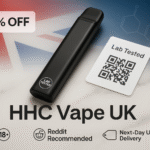 Vapes
Vapes THC Vapes
THC Vapes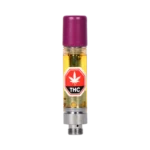 Vape Cartridge
Vape Cartridge Disposable Vapes
Disposable Vapes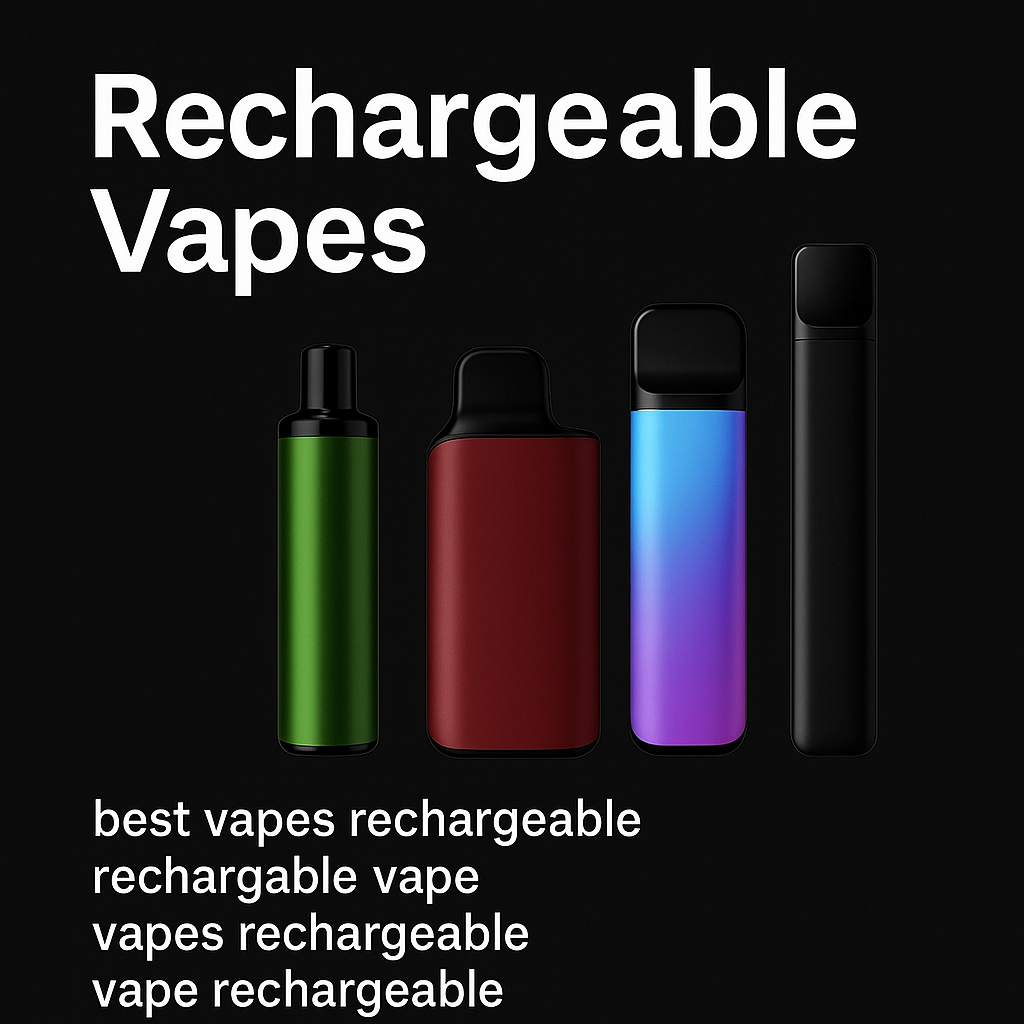 Rechargeable Vapes
Rechargeable Vapes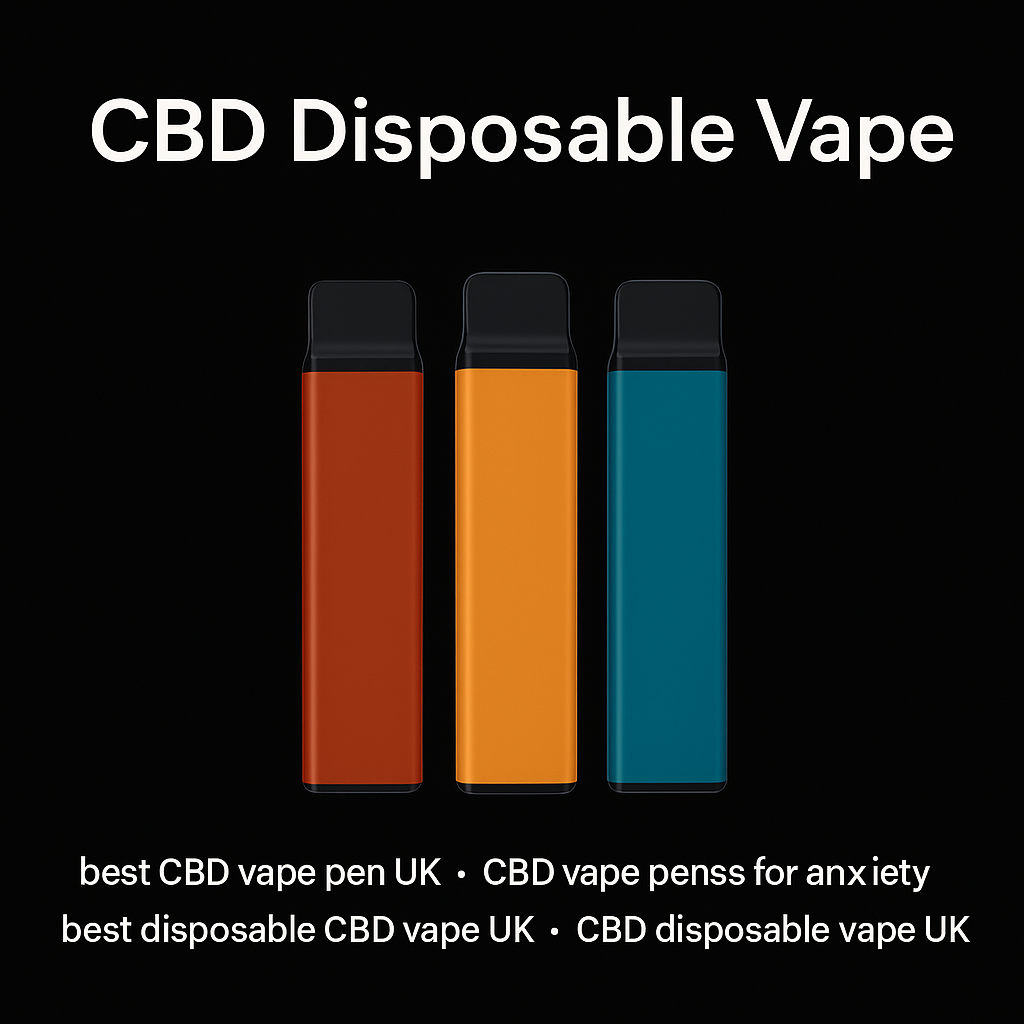 CBD Disposable Vape
CBD Disposable Vape Delta Vapes
Delta Vapes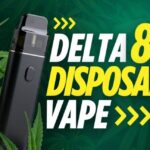 Delta 8 Vape
Delta 8 Vape Delta 9 Vape
Delta 9 Vape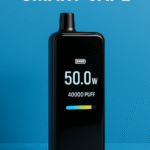 smart vape
smart vape Gummies
Gummies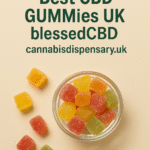 CBD Gummies
CBD Gummies THC Gummies
THC Gummies Delta 8 Gummies
Delta 8 Gummies Delta-9 Gummies
Delta-9 Gummies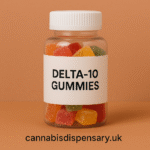 Delta-10 Gummies
Delta-10 Gummies HHC Gummies
HHC Gummies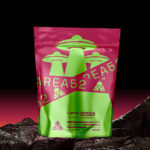 Full Spectrum Gummies
Full Spectrum Gummies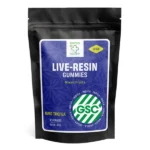 Live Resin Gummies
Live Resin Gummies